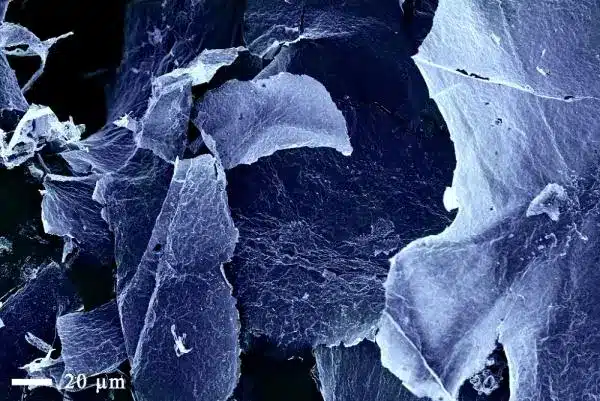About Mxenes
- Mxenes, first discovered in 2011, are ceramics that comprise one of the largest families of two-dimensional (2D) materials.
- Unlike most 2D ceramics, MXenes have inherently good conductivity and excellent volumetric capacitance because they are molecular sheets made from the carbides and nitrides of transition metals like titanium.
- They are made from a bulk crystal called MAX.
- They have the general formula of Mn+1XnTx, where M is an early transition metal, X is carbon and/or nitrogen, and T is a functional group on the surface of an MXene (typically O, OH, and F).
- Among various types of MXenes, titanium carbide (Ti3C2Tx) is the most widely used.
- Some potential applications of MXenes include energy storage (such as lithium-ion batteries and supercapacitors) due to their high conductivity and large surface area, electromagnetic interference shielding, catalysis, sensors, and water purification, among others.
What are Transition Metals?
- A transition metal is any of various chemical elements that have valence electrons—i.e., electrons that can participate in the formation of chemical bonds—in two shells instead of only one.
- They occupy the middle portions of the long periods of the periodic table of elements between the groups on the left-hand side and the groups on the right.
- Compared to other metals, transition metals have high melting points and densities, and they (and their compounds) can act as catalysts.
- They are good conductors of heat and electricity.
- Many transition metals are technologically important, including titanium, iron, nickel, and copper.
- The most abundant transition metal in Earth’s solid crust is iron.
Q1) What is electromagnetic interference (EMI) shielding?
Electromagnetic interference (EMI) is the coupling of signals from one system to another. EMI shielding is a technique of creating a barrier that prevents leakage of strong electromagnetic fields that can interfere with sensitive devices and signals. They can be installed to isolate the electromagnetic field source or as an enclosure of the device that needs protection.
Source: MXene-coated devices can guide microwaves in space and lighten the payload
Last updated on February, 2026
→ UPSC Notification 2026 is now out on the official website at upsconline.nic.in.
→ UPSC IFoS Notification 2026 is now out on the official website at upsconline.nic.in.
→ UPSC Calendar 2026 has been released.
→ UPSC Final Result 2025 is expected to be released in the second week of April 2026.
→ Check out the latest UPSC Syllabus 2026 here.
→ Join Vajiram & Ravi’s Interview Guidance Programme for expert help to crack your final UPSC stage.
→ UPSC Mains Result 2025 is now out.
→ UPSC Prelims 2026 will be conducted on 24th May, 2026 & UPSC Mains 2026 will be conducted on 21st August 2026.
→ The UPSC Selection Process is of 3 stages-Prelims, Mains and Interview.
→ Prepare effectively with Vajiram & Ravi’s UPSC Prelims Test Series 2026 featuring full-length mock tests, detailed solutions, and performance analysis.
→ Enroll in Vajiram & Ravi’s UPSC Mains Test Series 2026 for structured answer writing practice, expert evaluation, and exam-oriented feedback.
→ Join Vajiram & Ravi’s Best UPSC Mentorship Program for personalized guidance, strategy planning, and one-to-one support from experienced mentors.
→ Check UPSC Marksheet 2024 Here.
→ UPSC Toppers List 2024 is released now. Shakti Dubey is UPSC AIR 1 2024 Topper.
→ Also check Best UPSC Coaching in India




















